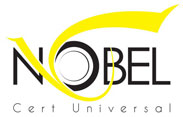ISO/IEC 27004:2016 provides guidelines intended to assist organizations in evaluating the information security performance and the effectiveness of an information security management system in order to fulfil the requirements of ISO/IEC 27001:2013, 9.1. It establishes: a) the monitoring and measurement of information security performance; b) the monitoring and measurement of the effectiveness of an information […]

ISO/IEC 12207:2008 establishes a common framework for software life cycle processes, with well-defined terminology, that can be referenced by the software industry. It contains processes, activities, and tasks that are to be applied during the acquisition of a software product or service and during the supply, development, operation, maintenance and disposal of software products. Software […]
ISO 4796-1:2016 specifies a series of screw-neck bottles suitable for the storage of fluid liquid and solid chemicals and reagents in general laboratory use. These bottles with nominal volumes ranging from 25 ml to 20 000 ml are also suitable for the preparation and storage of microbiological growth media.
ISO 15189 Medical laboratories — Particular requirements for quality and competence specifies the quality management system requirements particular to medical laboratories. The standard was developed by the International Organisation for Standardization’s Technical Committee 212 (ISO/TC 212). ISO/TC 212 assigned ISO 15189 to a working group to prepare the standard based on the details of ISO/IEC 17025:1999 General requirements for the […]
ISO 10003:2007 provides guidance for an organization to plan, design, develop, operate, maintain and improve an effective and efficient dispute-resolution process for complaints that have not been resolved by the organization. ISO 10003:2007 is applicable to: complaints relating to the organization’s products intended for, or required by, customers, the complaints-handling process or dispute-resolution process; resolution […]
This standard specifies the aims of modular co-ordination and states the general principles and rules to be applied in determining the dimensions of buildings and the positioning and dimensioning of components, equipment and assemblies. Modular co-ordination applies to the design of buildings of all types, to the design and the production of building components of […]





